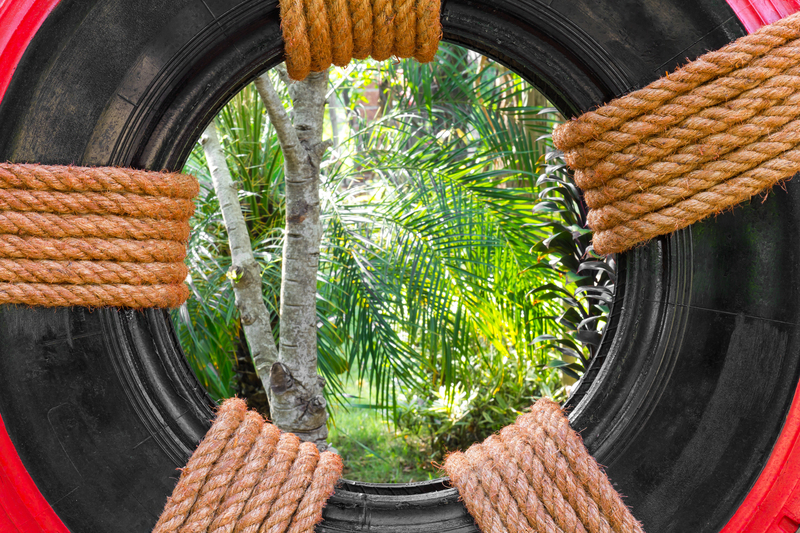Upgrade Your Home Recycling Game with Tried-and-True Tips
Recycling plays a crucial role in reducing waste and minimizing the environmental impact of our modern lifestyles. While many households make an effort to recycle, upgrading your home recycling game can make an even bigger difference. This comprehensive guide offers tried-and-true tips to help you revolutionize your recycling routine for a cleaner, greener home. Whether you're a recycling rookie or seasoned eco-warrior, these proven strategies will empower you to boost the effectiveness of your home recycling system and make a real impact.
Why Upgrade Your Home Recycling Habits?
Many communities provide access to recycling services, but efficient residential recycling requires more than just tossing containers into a blue bin. Proper sorting, cleaning, and a mindful approach not only improve the quality of recyclables but also reduce the risk of contamination that could derail the entire process. Upgrading your recycling habits results in:
- Less waste sent to landfills
- Conservation of resources and energy
- Cleaner neighborhoods and communities
- Support for a circular economy
Let's dive into actionable steps to help you enhance your home recycling efforts and make a meaningful contribution to environmental sustainability.

Tried-and-True Tips to Boost Your Home Recycling Game
1. Educate Yourself and Your Household
Premier recycling starts with education. Stay informed about what your local recycling center accepts, as guidelines often vary by region. Share this information with everyone in your household to ensure proper sorting and participation.
- Check your city's official recycling website or printed guides
- Watch informational videos or attend community workshops
- Print a list of accepted and unaccepted materials and post it in your kitchen or near your recycling bin
2. Set Up a Smart Recycling Station
Organizing your space is key to optimizing your recycling routine. Designate specific bins for different materials (paper, plastic, metal, glass, and compost).
- Choose appropriately-sized containers for your household needs
- Color code or label bins for easy identification
- Include a "review area" for items you're unsure about
Well-labeled recycling zones encourage correct disposal of waste and reduce contamination.
3. "Clean and Dry" Is The Golden Rule
Contaminated recyclables can send entire loads to the landfill. Rinse bottles, jars, and containers to remove food residue. Dry them thoroughly before placing in bins. Greasy pizza boxes, wet paper towels, or containers with leftover food belong in the trash or compost--not your recycling bin.
4. Know Your Plastics
One of the top recycling mistakes is placing non-recyclable plastics in your bin. Look for recycling numbers (1-7) in the triangle symbol and match them with what's accepted in your area.
- PET #1: Beverage bottles (usually accepted)
- HDPE #2: Milk jugs, detergent bottles (usually accepted)
- #3, #6, #7: Often not accepted curbside
When in doubt, leave it out--improper plastics are a leading cause of recycling contamination.
5. Reduce, Reuse, THEN Recycle
Upgrading your recycling game isn't just about what you recycle--it's also about minimizing waste in the first place. Adopt the "reduce, reuse, recycle" hierarchy:
- Reduce: Buy products with minimal packaging and avoid single-use plastics
- Reuse: Repurpose jars for storage or containers for crafts before recycling
- Recycle: When the first two options aren't possible, recycle properly
This approach drastically cuts down on your household's waste stream.
6. Compost Organics
Not all waste belongs in either the landfill or recycling bin. Start a composting system for organic waste like food scraps, coffee grounds, and yard clippings.
- Set up a backyard compost pile or use a countertop bin for kitchen scraps
- Check if your city offers organic curbside collection
- Compostable waste helps create nutrient-rich soil for your garden
7. Avoid Wish-Cycling
Wish-cycling--placing non-recyclable items in the recycling bin in hopes they'll get recycled--harms the entire system. Not everything that is plastic, metal, or glass can be recycled curbside.
- Bagged recyclables (keep recyclables loose unless your city requires bags)
- Plastic bags or film (usually only accepted at grocery stores)
- Pyrex, ceramics, and non-container glass (like window panes or glassware)
8. Try Advanced Sorting Tools
Upgrade your recycling efficiency with modern tools and apps:
- Recycling apps: Scan barcodes or search items to check recyclability (e.g., Recycle Coach, iRecycle)
- Smart bins: Some bins are designed with built-in sensors and auto-sorting capabilities
- Bottle deposit programs: Take advantage of programs that reward you for returning cans and bottles
Common Pitfalls: What NOT to Put in Your Home Recycling Bin
An important part of improving your household recycling efforts is learning what should never go into your regular recycling bin.
- Plastic bags and wrappings
- Styrofoam containers
- Greasy pizza boxes or paper plates
- Batteries and electronics (e-waste exposes recycling workers to hazards)
- Textiles and clothing (unless your city specifically allows textile recycling)
- Hazardous materials--chemicals, paint, and oil
If in doubt, err on the side of caution and check with your local provider before recycling questionable items.
Upgrade Your Home Recycling: Beyond the Blue Bin
Recycling doesn't stop at paper, glass, and plastics. Consider these next-level strategies to truly upgrade your home recycling practices.
Recycling Beyond the Basics
- Electronics recycling--locate a certified e-waste recycling center for old computers, phones, and appliances
- Clothing & textile recycling--donate wearable items, use designated textile bins, or explore upcycling projects
- Battery & lightbulb recycling--most hardware stores offer take-back programs for household batteries and bulbs
- Hazardous waste disposal--participate in community hazardous waste drop-off events
Get Creative: Repurpose and Upcycle
Before tossing an item, think creatively! Repurposing and upcycling reduce waste and can even add a personal touch to your home.
- Turn glass jars into storage containers or vases
- Transform old t-shirts into cleaning rags
- Use cardboard boxes for organizing toys, shoes, or crafting supplies
- Create garden markers with wine corks and skewers
The possibilities are endless--let your creativity contribute to a sustainable lifestyle.
Empower Your Community and Lead by Example
One of the best ways to improve household recycling rates and create a lasting impact is to inspire others to follow suit.
- Talk to your neighbors about best recycling practices
- Organize a recycling drive, clean-up event, or educational workshop
- Support businesses and brands committed to greener packaging
- Advocate for expanded recycling options in your community
Cutting-edge home recycling starts at the individual level but grows when communities unite for a greener future.

FAQs: Upgrade Your Home Recycling Game
How can I tell if something is recyclable?
Check for recycling symbols and numbers, and always reference local guidelines. When unclear, reference recycling apps or call your local waste management provider.
What should I do with shredded paper?
Shredded paper can often be recycled, but check local rules. Some communities require bagging in a paper bag, while others discourage recycling this material as it clogs sorting machines.
Can I recycle pizza boxes?
If the box is free of grease and food residue, you can usually recycle it. Otherwise, compost the clean parts and discard the greasy areas.
Is it necessary to remove labels from bottles and jars?
No, most recycling facilities can handle labels during processing. Just make sure bottles and jars are clean and dry.
Conclusion: Step Up and Upgrade Your Home Recycling Game
Making a habit of smart, systematic recycling is a powerful way to reduce your environmental footprint. By following these practical, tried-and-true tips, you can upgrade your home recycling game--ensuring recyclable items don't end up in landfills and supporting a healthier planet.
Every action counts. Encourage your family, roommates, and neighbors to recycle effectively. Stay up-to-date with local recycling protocols. With dedication and the right information, you can make a measurable difference in your home and your community.
- Start upgrading your recycling routine today!
- Keep learning, keep sorting, and keep making an impact--one item at a time.
For more guides and resources on efficient home waste management and eco-friendly living, visit our blog or subscribe to our newsletter.